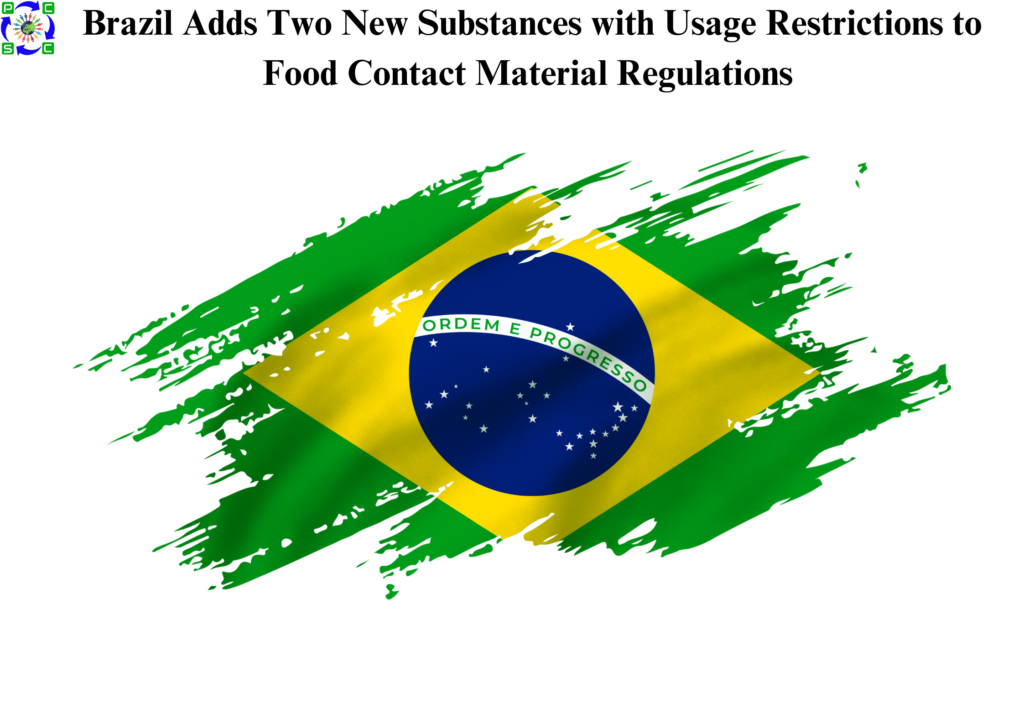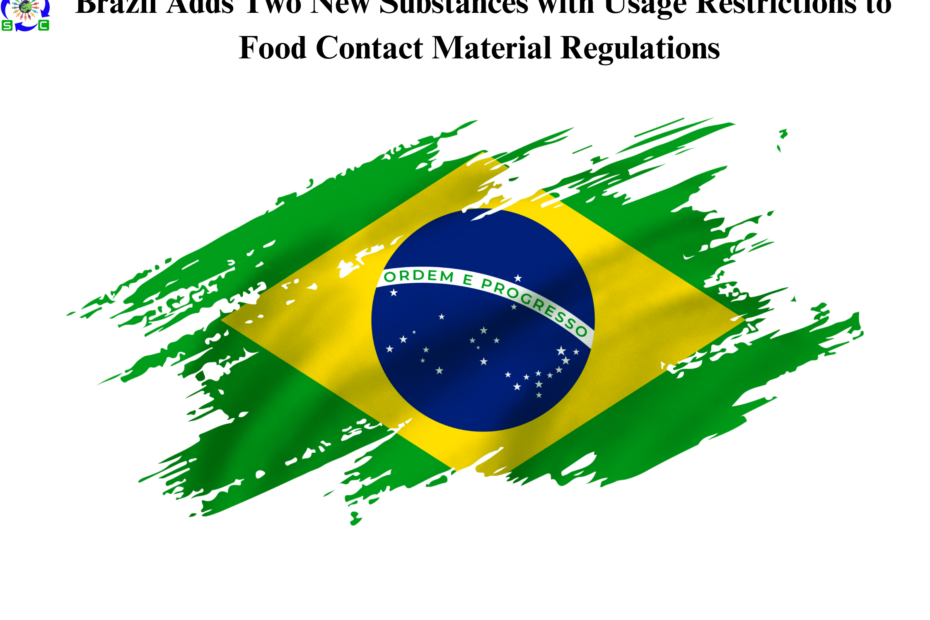 Resolution No. 961 (RDC 961/2025), published by Brazil’s National Health Surveillance Agency (ANVISA) on February 6, 2025, brought about major changes to the list of compounds that are permitted for use in plastic food-contact packaging and equipment. The update aims to improve consumer health and food safety protections by complying with the most recent scientific research and technical harmonization criteria of the Southern Common Market (MERCOSUR).
Resolution No. 961 (RDC 961/2025), published by Brazil’s National Health Surveillance Agency (ANVISA) on February 6, 2025, brought about major changes to the list of compounds that are permitted for use in plastic food-contact packaging and equipment. The update aims to improve consumer health and food safety protections by complying with the most recent scientific research and technical harmonization criteria of the Southern Common Market (MERCOSUR).
According to the 2012 RDC 56 regulations, the resolution adds the following two compounds to the “List of Permitted Monomers, Initiators, and Polymers”:
-
Monomer and Initiator: TMBPF-DGE
Chemical Name: Tetramethyl bisphenol F diglycidyl ether (TMBPF-DGE)—reaction product of tetramethyl bis(4-hydroxyphenyl)methane and epichlorohydrin.
Application Scope: Restricted to water-based polymer dispersion coatings for the interior of beverage cans.
Specific Migration Limits (SML):
-
0.2 mg/kg (sum of TMBPF, TMBPF-DGE, TMBPF-DGE·H₂O, and TMBPF-DGE·2H₂O);
-
0.05 mg/kg (sum of TMBPF-DGE·HCl, TMBPF-DGE·2HCl, and TMBPF-DGE·HCl·H₂O).
-
Polymer: PAI-2 (Polyamide-imide 2)
Chemical Name: Polymer derived from the reaction of 4,4′-methylenedianiline and benzophenone-3,4-dicarboxylic anhydride.
Usage Restrictions:
-
Permitted only as a binder for high-temperature cookware coatings, with a maximum coating thickness of 60 micrometers;
-
Maximum continuous use temperature: 230°C, with short-term tolerance (≤15 minutes) up to 250°C.
As soon as the resolution is published, it becomes operative. To guarantee adherence to the new regulations, pertinent businesses must immediately examine product compositions and manufacturing procedures. Imported and domestically produced food-contact items will be subject to more thorough inspections by ANVISA, and noncompliant businesses risk product recalls or administrative sanctions.
Stay ahead in sustainability compliance with Global PCCS —where expert insights meet the latest regulations. Unlock a future where compliance fuels sustainability, helping your business thrive in a greener, well-regulated world. For more information, contact us at info@globalpccs.com








 Authorised IMDS & CDX Training & Consulting partner for
Authorised IMDS & CDX Training & Consulting partner for






